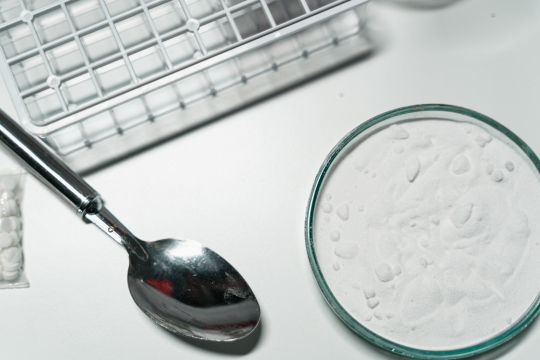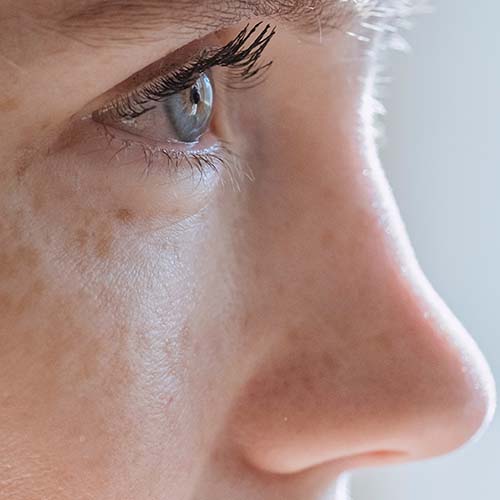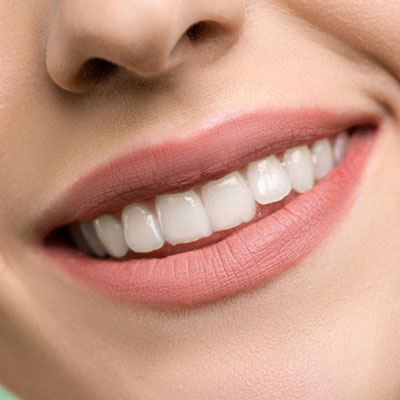
Cocaine’s Drug Effects You Should Know

Cocaine is a stimulant drug that is illegal for recreational use. It can be used in several ways and may be snorted, smoked, or injected directly into the veins. Although using this drug may feel good due to the flood of dopamine in your brain’s reward circuit, there are many potential cocaine drug effects that can cause lasting damage to your body. Today, we discuss 5 of these effects.
There are many potential adverse effects of cocaine, from a fast or irregular heartbeat to increased blood pressure to restlessness, among others. These effects will appear almost instantaneously after using cocaine and can take up to an hour to subside. The duration and severity of the effects largely depend on whether the drug was smoked, injected, or snorted.
Table of Contents:
1. Brain
Cocaine can change the way your brain works. It can impact the way your brain handles stress and make you more likely to seek drugs while you are stressed.

Prolonged and heavy cocaine use can also desensitize the receptors to the reward centers in your brain, meaning that it takes higher and/or more frequent doses to achieve the desired effect. This, in turn, increases the risk of overdose.
Cocaine also changes the way your orbitofrontal cortex works. This can impact your self-insight and decision-making surrounding drug use, making it that much harder to seek treatment when you need it most.
2. Nose
People who primarily snort cocaine are susceptible to long-term damage to the nose.
Cocaine effects on your nose include:
- Nosebleeds
- Frequent infections
- Anosmia (loss of smell)
- Allergy exacerbation
- Nasal obstruction
- Whistling noises while breathing
- Nasal deformity or collapse

Long-term cocaine use can cause a condition known as a perforated septum. This occurs when blood flow is restricted long enough for the septum tissue to die, leading to a hole and sometimes a collapse that causes a saddle-nose deformity.
Septal perforations can be treated and reversed with medical attention. If caught early, surgery may not be needed.
3. Heart

Cocaine is a stimulant that increases heart rate and blood pressure in the short term. It inhibits normal reuptake of norepinephrine, dopamine, and serotonin, prolonging sympathetic nervous system activity.
This puts heavy strain on the cardiovascular system. Cocaine also constricts capillaries, reducing oxygen to the heart and forcing it to work harder.
Documented effects include:
- Hypertension
- Arrhythmia
- Heart attacks
- Inflammation of the heart
- Aortic ruptures
- Decreased heart contraction ability
- Increased risk of stroke
- Coronary artery disease
- Congestive heart failure
- Blood clots
4. Teeth
Individuals who use cocaine primarily by rubbing it into their gums or snorting it through the nose may see changes to their teeth.
Effects include:
- Bruxism (teeth grinding)
- Dry mouth
- Palatal perforation (hole in the roof of the mouth)
- Chronic gingivitis
- Periodontitis
- Ulcers
- Tooth decay
- Brittle, breakable teeth


5. Pupils
Cocaine causes:
- Dilated pupils that do not constrict with bright light
- Sensitivity to bright rooms or sunlight
- Red, bloodshot eyes
Long-term effects include:
- Endophthalmitis (infection, often in individuals who inject cocaine)
- Glaucoma
- Keratitis
- Ocular bone damage
- Maculopathy
- Retinal vascular occlusive disease (RVOD)
- Yellow-colored eyes due to liver damage
- Talc retinopathy (from adulterants in cocaine)
- Nystagmus (eye twitches)
Cocaine’s Effects on the Body, Overdose Risk, and Addiction
Cardiovascular Damage, Blood Vessels, and Needle Risks
Your heart can be impacted by regular cocaine use. Since cocaine is a stimulant, it causes your heart to work harder while also restricting how much oxygen can reach it. Cocaine raises heart rate and blood pressure and places significant strain on the cardiovascular system.
Cocaine may cause blood vessel damage and scarring in people who inject it. Individuals who use cocaine by injecting it into their bloodstream can permanently damage veins. When needles are shared or not properly sanitized, there is a risk of contracting hepatitis and other communicable diseases.
Nervous System Effects, Tremors, Nutrition, and Sleep
Since cocaine restricts blood flow to capillaries, it can cause lasting nerve damage. This damage may manifest as uncontrollable tremors or twitches.
Cocaine can suppress appetite, leading to malnourishment due to inadequate intake of essential vitamins and nutrients. Dehydration is also common.
Cocaine alters the body’s circadian rhythm and affects genes related to sleep. This may result in difficulty falling asleep, difficulty staying asleep, and reduced deep sleep. Insomnia and disrupted sleep patterns are common effects of ongoing cocaine use.
Cocaine can also cause bowel decay when used orally due to reduced blood flow to the digestive tissues.
Cocaine Overdose
Less than one gram of cocaine can be enough to cause a fatal overdose. Overdose risk depends on factors such as environment, hydration, substances mixed with cocaine, form of cocaine used, and tolerance.
Risk by method of use:
- Injecting cocaine presents the highest risk of overdose
- Smoking cocaine presents the second highest risk
- Snorting or gumming cocaine produces effects in 1 to 3 minutes
Dealers may cut cocaine with flour, cornstarch, or fentanyl, making dosing unpredictable and significantly increasing overdose risk.
Cocaine overdose symptoms include:
- Fever and sweating
- Extreme anxiety or agitation
- High blood pressure or irregular or very fast heartbeat
- Difficulty breathing
- Loss of awareness
- Hallucinations
- Bluish skin
- Seizures
Cocaine overdose is a medical emergency.
There is no medication that reverses a cocaine overdose. Treatment focuses on IV fluids, symptom management, preventing stroke or heart attack, and diagnostic testing. A cocaine overdose usually resolves within 60 minutes once the drug is processed by the body.

Crack Cocaine and Freebasing
Crack cocaine is created by mixing powder cocaine with baking soda and water, then heating the mixture to form solid rocks. Crack may appear white, tan, cream, or brown. Smoking crack allows cocaine to reach the brain quickly, producing a short but intense high that typically lasts 15 to 20 minutes.
Crack is more potent and addictive than powdered cocaine due to the speed at which it reaches the brain and the short duration of the high, which encourages repeated use.
Cocaine and crack are pharmacologically the same drug. The difference lies in their form and method of use. Snorted cocaine has a slower onset, while crack delivers a rapid, intense high when smoked, resulting in higher abuse potential.
Freebasing cocaine involves chemically altering the drug into a smokable form by removing the hydrochloride component using a strong alkaline solution. The freebase form is heated and inhaled, allowing it to cross the blood-brain barrier quickly and cause immediate, intense euphoria. The production process itself carries explosion risk.
Freebasing can lead to severe respiratory issues, lung damage, heart palpitations, paranoia, hallucinations, and a higher risk of addiction due to toxic fume inhalation.
Crack Addiction and Behavioral Signs
Signs of crack abuse may include:
- Changes in appetite
- Extreme fatigue after use
- Sleeping for long periods
- Bursts of energy
- Erratic or aggressive behavior
- Rapid talking
- Oral health problems
- Cracked or blistered lips
- Tooth decay
- Recognizing paraphernalia such as pipes, cans, bottles, light bulbs
- Frequent disappearances to use crack
Addiction to crack cocaine is difficult to confront without support. Intervention specialists can help organize a safe and compassionate confrontation to encourage treatment.
Addiction and Withdrawal
Cocaine addiction occurs when a person becomes physically and psychologically dependent on the effects of the drug. Cocaine is a highly addictive stimulant and commonly appears in two forms: powder and crack.
Signs of cocaine addiction include:
- Inability to stop using
- Inability to reduce use
- Withdrawal from responsibilities
- Work or school absence
- Loss of interest in hobbies
- Social withdrawal
- Increasing dosage over time
- Cravings
- Taking cocaine to avoid withdrawal
- Behavioral changes
Cocaine withdrawal symptoms are more psychological than physical and may include:
- Agitation
- Depression
- Fatigue
- Increased appetite
- Unpleasant dreams
- Insomnia
- Slowed thinking
Withdrawals are not life-threatening, but suicidal thoughts can occur, making medical oversight important.
Short- and Long-Term Effects of Cocaine Use
Short-term effects may include:
- Happiness
- Energy
- Alertness
- Hypersensitivity
- Paranoia
- Fast or irregular heartbeat
Long-term effects may include:
- Loss of smell
- Respiratory issues
- Bowel decay
- Collapsed veins
- Nutritional deficiencies
- Escalating tolerance and overdose risk
Avoid Cocaine Drug Effects With Elite Home Detox
Although the short-term effects of cocaine may include extreme happiness, energy, and mental alertness, they can also include paranoia, irritability, and hypersensitivity to sensations. Regular cocaine use can lead to permanent damage and increased overdose risk, depending on the method of use.
Elite Home Detox offers customized, medically managed in-home detox programs with 24/7 medical monitoring, personalized aftercare, privacy, and convenience. Patients receive medical oversight, detox, therapy, and monitoring in the comfort of their own home.
Call us or book a consultation today. We’re ready to help you begin a full and lasting recovery.


